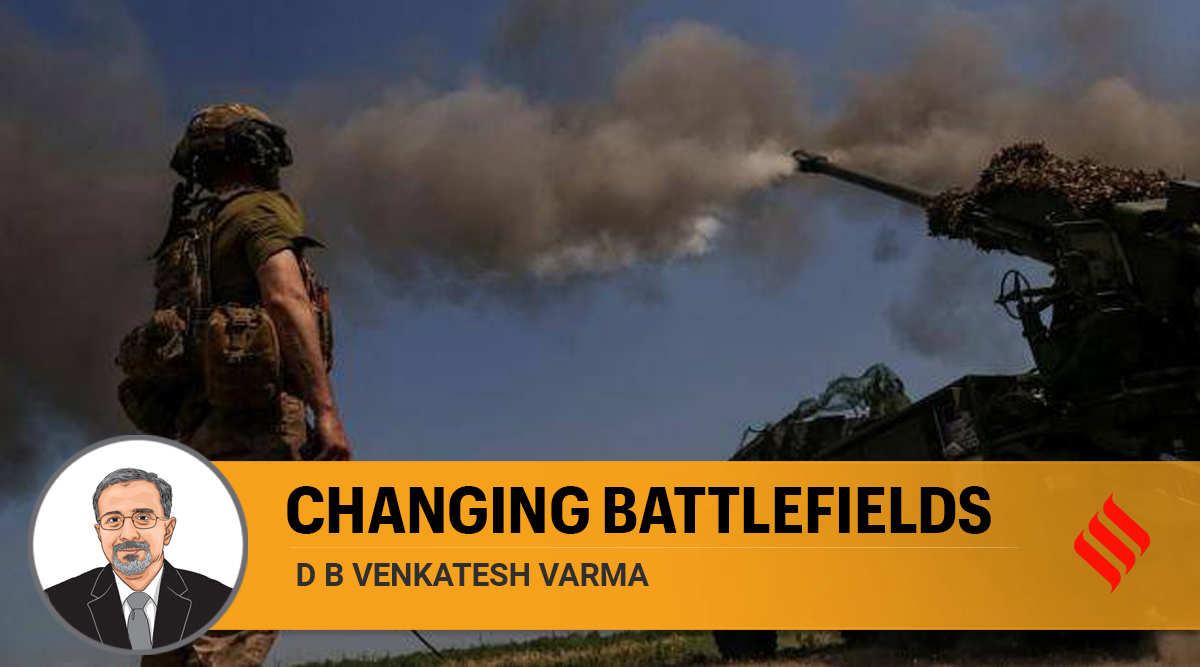
No two wars are alike. Studying the ongoing Russia-Ukraine conflict may, however, offer some insights as to its changing nature, the impact of new technologies and new dimensions of strategy. At least 10 military lessons can be enumerated.
First, unstable deterrence upended by big-power geopolitical conflict is inherently escalatory. How well Russia fares on the battlefield remains key to the fate of Ukraine as an independent state and the future of NATO. Given the high stakes, all parties to the conflict are in escalation mode, with its consequential deeply worrying risks. Short of membership, NATO may double down on supporting Ukraine.
Second, prolonged wars are more than stalemated wars due to their escalating aims. For some in our expert-community, long used to analysing American wars fought in easy combat environments, Russia’s ability to defy numerous predictions of its defeat has come as a surprise. Counting on Russia’s defeat has been a bad bet.
Third, prolonged wars require a steady hand on the battlefield and a stable domestic front. Following the dramatic Prigozhin rebellion, Russia was shaken but stabilised. It is Europe’s political economy, long used to cheap Russian energy, ample Chinese markets, and inexpensive US security, where uncertainties abound, most visibly in France.
Fourth, battlefield and political resilience are two sides of the same coin. Despite military setbacks of the last year — Kiev, Kharkiv and Kherson — to regroup and refit well enough to turn the military tide in their favour, Russian forces in Donbas have been like a coconut grater decimating oncoming Ukrainian offensives, thus showing good fighting armies are also good learning armies. Strategic patience on the part of the political leadership and strategic coherence of the military go hand in hand. Whether this will hold good for Russia till war termination remains to be seen, just like whether the possible destruction of the Ukrainian military will lead to the collapse of the Ukrainian state. These are still the two big unknowns of the war.
Fifth, prolonged wars are wars of reserves — of political will, military capacity and reserves, civilian-industry fusion, industrial logistics, fresh and rotated manpower and role of paramilitaries. The Russian arms industry has bounced back, and its arsenal now has some of the best battle-tested equipment globally. Maintaining message consistency is critical to maintaining morale. Russia has gradually gained the upper hand, despite massive Western media support for Ukraine.
Sixth, wars are not linear but overlapping in lineage. The Ukraine conflict is a 21st century war intersecting with 20th century use of artillery and dug-in defence. However, in other respects, in the clash of intelligence, surveillance, and reconnaissance (ISR) assets, what in essence is a direct clash between Russia and NATO systems, the conflict is a harbinger of things to come. Here too, Russia learnt and adapted.
Advertisement
Seventh, the ugly child of the ISR revolution is the naked battlefield, disrobed of effective camouflage for deployed forces, or even attacking forces, as Ukraine is learning the hard way, due to the relentless stare of visual, infrared, and electronic sensors carried by drones, aircraft, and space assets. Increased use of AI and quantum computing would compress combat engagement windows from hours to minutes. Escalation within the domain or jumping across domains — cyber, space or the electromagnetic spectrum or even the threat of eco-warfare — would offer new margins of strategic surprise. Drone saturated battlefields will be the future norm. Critical technologies may have reverse flows — from the high-tech civilian sector to the mass-use military domain, sometimes blurring the distinction between combatants and non-combatants.
Eighth, the democratisation of combat information will generate pressures for decentralisation of firepower, even as low as the platoon level. Erosion of stealth will force dispersal of forces, both on land and at sea. Engagements would be multiple and simultaneous rather than sequential. Maintaining control over widely dispersed forces will require integration of command of an entirely new order. With range now the new battlefield monarch, militaries will struggle with balancing accurate firepower with volume firepower even as sensor and strike capabilities get fused ever closer together. Beyond Visual Range (BVR) capabilities of the Russian Air Force are now proving deadly and will be even more so in tech-rich militaries like that of the US or China.
Ninth, the appeal of technology is universal, but its application is doctrine specific. By adapting technology to its doctrinal needs, Russia secured battlefield gains, while Ukraine has been caught midstream between its own doctrine and that imported from NATO. The trend towards networked battlefields is the way of the future. Accepting one-size-fits-all — which is what the intended interoperability of Indian forces with those of the US will perhaps entail in practice — would create its own pitfalls, including constraining our operational flexibility in the name of doctrinal uniformity, which is the real conceptual underpinning of interoperability. Networked warfare enables substantial benefits but also locks in huge risks of drawing us into combat situations not of our choosing. India should prepare to fight its wars; not those of others.
Advertisement
Finally, India’s quiet military revolution, in terms of changes to higher defence management, procurement, and recruitment as well as on operational principles of jointness, integration and theaterisation, will greatly benefit our armed forces. We would do well to learn, unlearn and relearn not only the lessons of past wars, but more importantly, study current global trends for lessons relevant for our future challenges. Independence in thought and action in matters of war and peace is, after all, the true meaning of strategic autonomy and for our defence reform process, its true litmus test.
The writer is a former Ambassador to Russia and the Conference on Disarmament.
"conflict" - Google News
July 07, 2023 at 09:08PM
https://ift.tt/71RVqt0
Ten military lessons from the Ukraine conflict for India - The Indian Express
"conflict" - Google News
https://ift.tt/tfaVrHP
https://ift.tt/m3K6Z2l
Bagikan Berita Ini














0 Response to "Ten military lessons from the Ukraine conflict for India - The Indian Express"
Post a Comment